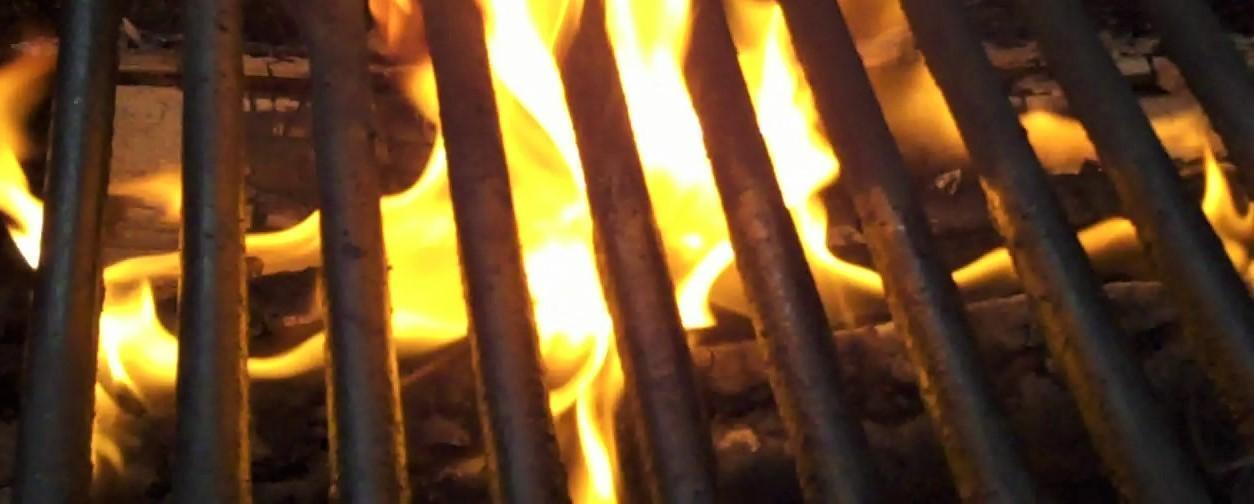As Spring and Summer approach, it's time to get out and clean up the mess left from last year's grilling activities. But, it can be easy to forget some of the most important grilling parts: cleaning and maintenance.
Grill Grate Care: Essential Steps for Cleaning and Seasoning
The grill grate is the workhorse of your barbecue, bearing the brunt of heat, food, and residue. Regular cleaning and proper maintenance of your grill grate are essential for optimal cooking performance, food safety, and extending the life of your grill. This guide provides simple, effective steps for cleaning and oiling your grill grate.
Cleaning the Grill Grate: A Two-Pronged Approach
Effective grill grate cleaning involves both regular maintenance after each use and occasional deep cleaning.
1. Regular Cleaning (After Each Use):
- Heat is Your Friend: The easiest way to clean your grill grate is immediately after cooking, while the grill is still hot.
- Burn Off Residue: Turn your grill to high heat for about 5 minutes. This intense heat will burn off most of the remaining food particles and grease, turning them into ash.
- Brush Vigorously: Use a good quality grill brush with firm bristles (or a scouring pad designed for grills) and a long handle (for safety and leverage). Apply firm pressure and brush the grates thoroughly to remove any remaining charred debris. A long handle keeps your hands away from the heat.
2. Deep Cleaning (Periodically):
While regular brushing after each use is crucial, occasional deep cleaning is necessary to remove stubborn buildup. The frequency depends on how often you grill, but a good rule of thumb is to deep clean at least once or twice a grilling season, or more often if you grill frequently or cook particularly greasy foods. (The previous article provided a deep clean method, you could add a section here detailing it, and referencing the previous section)
Choosing the Right Grill Brush:
Invest in a high-quality grill brush. Look for:
- Long Handle: Provides reach and keeps your hands away from the heat.
- Firm Bristles: Stainless steel bristles are durable and effective. Consider bristle-free brushes or scouring pads for an alternative if you're concerned about bristle safety.
- Sturdy Construction: The brush should feel solid and well-made, not flimsy.
Oiling the Grate: Preventing Sticking and Enhancing Flavor
Oiling your grill grate before cooking serves two important purposes:
- Prevents Sticking: A thin layer of oil creates a barrier between the food and the hot metal, preventing sticking and making cleanup easier.
- Enhances Flavor (and Sear): The oil contributes to a better sear and can add a subtle flavor, especially if you use a flavorful oil.
How to Oil Your Grill Grate:
- Choose Your Oil: Select an oil with a high smoke point, such as canola oil, vegetable oil, peanut oil, or grapeseed oil. Avoid oils with low smoke points, like olive oil, as they can burn and create unpleasant flavors.
- Apply Sparingly: Too much oil can cause flare-ups. A little goes a long way.
- Use Tongs and a Paper Towel: Wad up a paper towel and dip it lightly into the oil. Using BBQ tongs, carefully and evenly wipe the oiled paper towel across the hot (but not flaming) grill grates. Do not saturate the paper towel.
- Pre heat grill: Always oil grates after the grill is hot, but before any flames come up.
Properly cleaning and oiling your grill grate is a simple but essential part of grill maintenance. By following these steps, you'll ensure even cooking, prevent food from sticking, enhance flavor, and prolong the life of your grill. A well-maintained grate leads to better-tasting food and a more enjoyable grilling experience.
Share This Article on Social Media
{ampz:PhillyBite}
